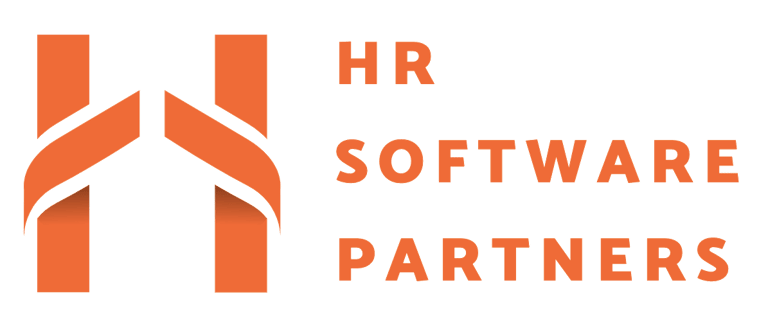15 HR Trends for 2025 for SME's
The workplace is evolving faster than ever before, and 2025 is set to bring groundbreaking shifts in how businesses approach human resources. From leveraging artificial intelligence to prioritizing employee well-being, HR leaders need to stay ahead of the curve to build resilient and adaptable organizations. Below, we explore 15 key HR trends shaping the future of work in the UK and beyond.
EMPLOYEE ENGAGEMENT & RETENTIONHRIS SELECTION STRATEGIESHR AUTOMATION


15 Emerging HR Trends for 2025 That Will Shape the Future of Work
The workplace is evolving faster than ever before, and 2025 is set to bring groundbreaking shifts in how businesses approach human resources. From leveraging artificial intelligence to prioritizing employee well-being, HR leaders need to stay ahead of the curve to build resilient and adaptable organizations. Below, we explore 15 key HR trends shaping the future of work in the UK and beyond.
1. Artificial Intelligence (AI) Integration in HR
AI continues to transform HR operations, automating repetitive tasks like payroll, recruitment screening, and employee onboarding. Beyond efficiency, AI offers predictive analytics for workforce planning and talent retention. However, ethical considerations around bias and data privacy remain critical challenges for HR professionals to address.
2. Asynchronous Working Models
Asynchronous working is gaining traction as organizations adopt flexible work schedules to accommodate global teams and diverse lifestyles. This model empowers employees to work at their most productive times, fostering autonomy and work-life balance while requiring innovative tools for communication and collaboration.
3. Data-Driven HR Strategies
Data analytics is becoming indispensable in HR, enabling leaders to make informed decisions about hiring, retention, and employee development. Metrics like employee engagement scores and turnover rates provide actionable insights to optimize workforce management.
4. Enhancing Employee Experience
Organizations are prioritizing employee experience (EX) to attract and retain top talent. From onboarding journeys to personalized career paths, creating a positive EX is essential for fostering loyalty and boosting productivity.
5. Strategic Workforce Planning
In a rapidly changing business environment, workforce planning has become a strategic imperative. HR leaders are focusing on identifying future skills gaps and implementing upskilling and reskilling programs to ensure business continuity and competitiveness.
6. Continuous Learning and Upskilling
With technology evolving rapidly, continuous learning is non-negotiable. Companies are investing in upskilling initiatives and online learning platforms to keep their teams equipped with the latest skills and knowledge.
7. Diversity, Equity, and Inclusion (DEI) Initiatives
DEI has moved beyond buzzwords to become a core component of organizational strategy. Advanced DEI practices, often called DEI 3.0, involve using data to identify disparities, fostering inclusive leadership, and ensuring accountability through transparent reporting.
8. Comprehensive Employee Well-being Programs
Employee well-being is no longer limited to physical health. Holistic well-being programs addressing mental, emotional, and financial health are on the rise. Initiatives like mindfulness training, financial planning workshops, and mental health days are becoming mainstream.
9. Flexible Work Arrangements
Flexibility is now a cornerstone of modern workplace culture. Hybrid models, remote-first policies, and flex hours are redefining how and where work gets done. Organizations embracing flexibility see higher employee satisfaction and retention rates.
10. HR’s Evolving Role and Rebranding
The role of HR is shifting from administrative to strategic. HR departments are being rebranded as "People and Culture" teams, emphasizing their influence on company strategy, innovation, and employee engagement.
11. Ethical AI in HR
While AI offers significant benefits, it also poses ethical dilemmas. HR leaders must ensure fairness and transparency when implementing AI-driven tools, particularly in areas like recruitment and performance evaluation.
12. Employee Engagement 2.0
Employee engagement strategies are becoming more innovative and personalized. Gamification, recognition platforms, and real-time feedback tools are being used to keep employees motivated and aligned with company goals.
13. Organizational Culture Transformation
Evolving workplace paradigms demand a shift in organizational culture. Companies are prioritizing adaptability, collaboration, and purpose-driven missions to stay relevant in the future of work.
14. Change Management in HR
Navigating change has become a critical skill for HR professionals. Whether implementing new technologies or restructuring teams, effective change management ensures smooth transitions and minimizes disruptions.
15. Environmental, Social, and Governance (ESG) Compliance
ESG initiatives are increasingly tied to HR’s mandate, as organizations recognize the importance of sustainability and social responsibility. HR teams are tasked with embedding ESG principles into recruitment, engagement, and corporate policies.
Conclusion
As we approach 2025, these HR trends highlight the need for innovation, adaptability, and a people-first approach. By embracing these shifts, organizations can build thriving workplaces that attract top talent, foster engagement, and drive long-term success. HR professionals who stay ahead of these trends will not only navigate the future of work effectively but also play a pivotal role in shaping it.
